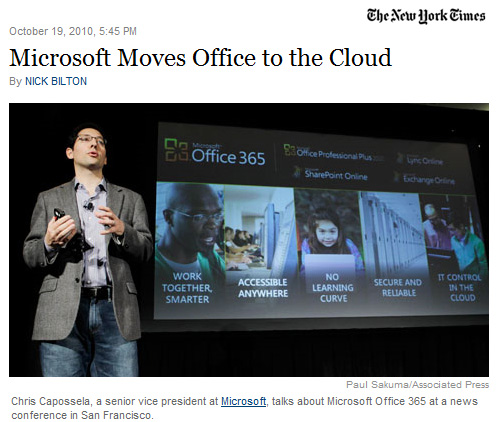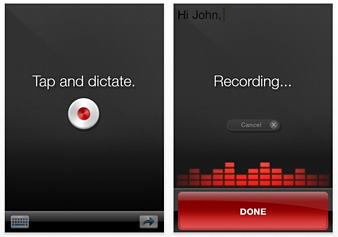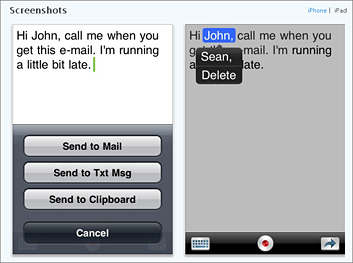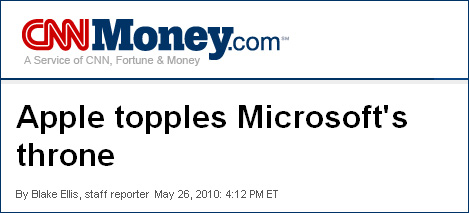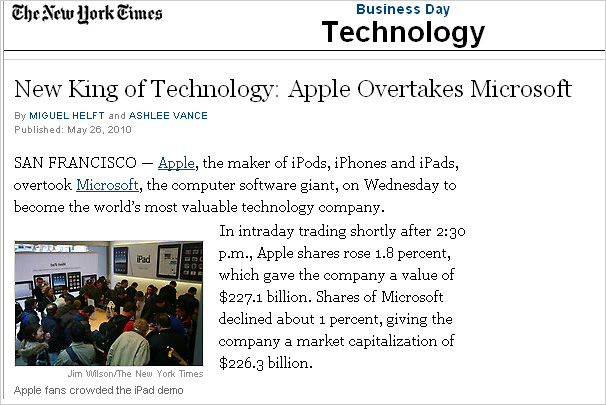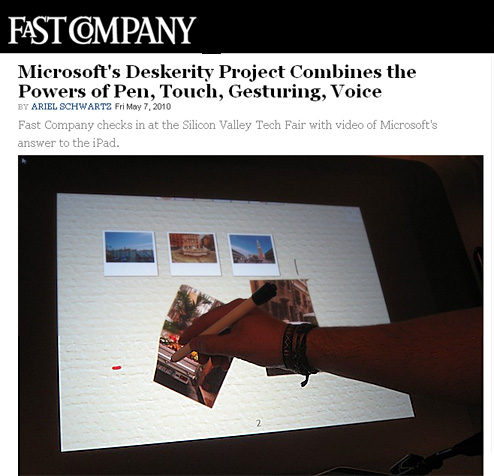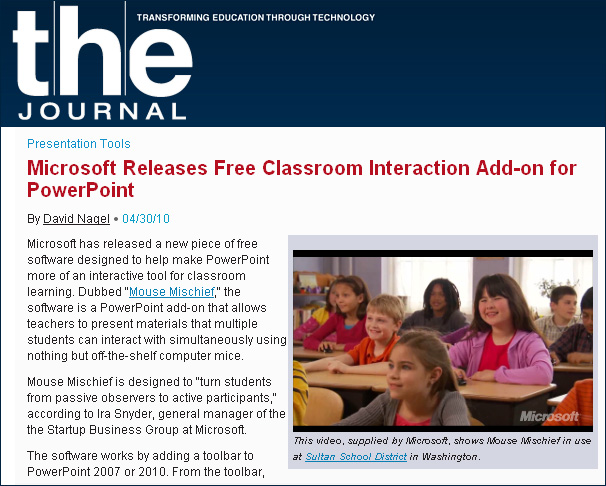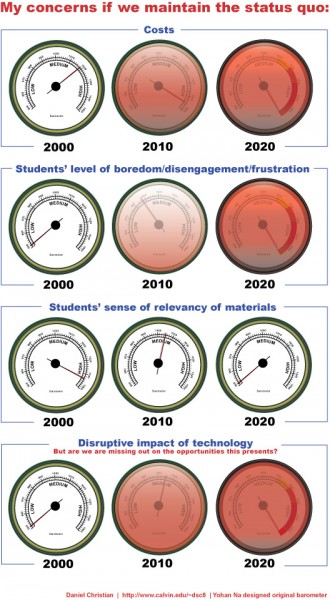Using Microsoft’s speech recognition: helping my stepfather manage Parkinson’s — from DavidWees.com
Audio feedback: A how-to guide — from JISC
Summary
This document provides a simple step-by-step guide to creating and embedding audio feedback using Microsoft Word 2000 and 2007, the most common format for student text works. There is also a mention of embedding audio in PDFs, which is discussed at the end of this document, with a link to the appropriate Adobe online resource.
Introduction
Audio feedback is becoming an increasingly common method of delivering high quality feedback to students in a non-text based manner. Our document Audio Feedback discusses the merits of this approach based on research and technologies available in this field.
Before embarking on recording digital files for students, you should read our advice on Audio Feedback and specifically the section What technical knowledge do I need to know?, as it contains information regarding structuring feedback, and some technical pointers for creating digital audio files.
A significant point worth noting here is the management of digital files. Appropriate file naming, directory structuring and file storage should be carefully considered and adhered to when you are making extensive numbers of digital files.
The future of Microsoft Windows Azure: Platform as a service — from arstechnica.com by Peter Bright
.
At PDC yesterday, Microsoft unveiled its roadmap for the Windows Azure cloud computing platform. Moving beyond mere Infrastructure-as-a-Service (IaaS), the company is positioning Windows Azure as a Platform-as-a-Service offering: a comprehensive set of development tools, services, and management systems to allow developers to concentrate on creating available, scalable applications.
Over the next 12-18 months, a raft of new functionality will be rolled out to Windows Azure customers. These features will both make it easier to move existing applications into the cloud, and enhance the services available to cloud-hosted applications.
Microsoft’s visionary heads out the door — from CNN.com
Also see:
“Ozzie leaving highlights that Microsoft has been kind of lost in the woods ever since Bill Gates left,” said Toan Tran, an analyst at Morningstar. “They let Google solve search, they let Apple figure out smartphones, and Apple is in the process of figuring out non-Windows PC devices with the iPad.”
Microsoft Office 2010 hits store shelves — from arstechnica.com by Emil Protalinski |
Microsoft Office 2010, Visio 2010, and Project 2010 [hit store shelves yesterday, 6/14]. Office 2010 can be purchased from more than 35,000 retail stores worldwide, including directly from Office.com. The productivity suite hit RTM last month in 14 languages, with 10 currently available to consumers (94 will eventually be supported). Office 2010 is the first release that comes in 32-bit and 64-bit flavors, all on one DVD.
Newly purchased PCs from major OEMs now come with the ad-supported Office Starter 2010 or a more full-featured version; in the next year alone, Microsoft expects more than 100 million PCs to ship with Office 2010 preloaded. Consumers can purchase four of the SKUs at retail, or they can upgrade to three of them via a Key Card purchase or download.
| SKU | Included applications | Boxed price | Key Card price |
|---|---|---|---|
| Home and Student | Word, PowerPoint, Excel, and OneNote | $149 | $119 |
| Home and Business | Same as above, plus Outlook | $279 | $199 |
| Standard | Same as above, plus Publisher | Volume Licensing | Volume Licensing |
| Professional | Same as above, plus Access | $499 | $349 |
| Professional Academic | Same as above | $99 | N/A |
| Professional Plus | Same as above, plus SharePoint Workspace, InfoPath | Volume Licensing | Volume Licensing |
Last night, I had to work on an assignment for my online class. I was tired of typing and I didn’t want to be inside anymore (it was 7:30pm or so).
As I had my iPhone with me, I decided to try Dragon’s Dictation program (see here and here). I have to say…it was very easy-to-use, very convenient and a huge time-saver!
I simply tapped the screen to start recording my voice, and then tapped the screen again when I was done speaking. The application returned to me the text of what I had just said. I was then able to email that text to myself and put it into my web page (later on) for my assignment for class.
Very helpful…very interesting.
Here are some example screenshots from Apple:
Related to this is the ability to put audio feedback directly into a Word document — my thanks to Professor Julie Yonker at Calvin College for this insight and huge time-saver!
From DSC:
Years ago people thought I was crazy by purchasing one of the only Mac’s in the entire University. But it was the right call then, and it’s the right call still. Don’t get me wrong. I use a PC w/ Windows XP constantly. I use Microsoft Office and it’s an excellent suite of applications. However, it’s not great for multimedia creation and Microsoft had/has some serious self-imposed strikes against it:
- Because of their ruthless way of doing business, Microsoft made it’s bed and now it’s lying in it
- They never lead in the world of the Internet — they didn’t before and they still don’t
- They didn’t believe they needed to play by others’ standards — they made whatever standards they had/wanted the defacto standards
- They didn’t innovate nor do they have the culture for innovation. In many ways, their culture is the wrong one for what’s needed today. The culture of an organization — and how one treats its customers — are extremely important. I always underrated the cultural piece; but in the last decade, I have seen how true that statement really is.
Back from March 12th:
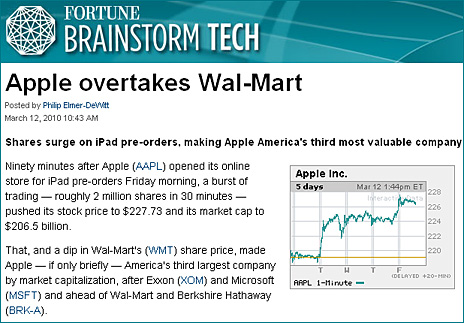
Microsoft’s Deskerity Project combines the powers of pen, touch, gesturing, voice — from FastCompany.com via Mr. Yohan Na, Calvin College, Teaching & Learning Digital Studio
From DSC:
A trusted and wise colleague and I agreed many years ago (~2003 or so) that we had seen the peak of Microsoft. This morning, I was reminded of those reflections and conversations when I saw today’s article by Marc Benioff, Chairman and CEO salesforce.com:
The end of Microsoft. A door opens to a new cloud.
As apps migrate to the Net, the software giant’s old model looks older every day.
Though I doubt we’ll see Microsoft going away entirely any time soon:
If you are in computer science:
You need to be paying attention to cloud-based computing and begin moving in that direction in terms of your investments in time/efforts.
If you are in business/economics:
Learn the lesson from what happens when you do business like Microsoft did (i.e. dealing ruthlessly and often times unfairly with competitors, while not listening to your customers and those within the standards-setting-bodies of the world). When you make your bed like that, you will lie in a bed like that. Microsoft will have a hard time adjusting to a world based upon creativity, innovation, collaboration, standards, respect for others, working in a platform that they can’t control, and will struggle to keep up with those organizations who are able to move at the speed of trust (Covey). Maybe this same writing was on the wall when Bill Gates made his decision to leave Microsoft years ago.
Microsoft releases an Office add-in for Moodle — Moodle.org
Also see:
When Moodle meets Microsoft — from Joel Kerr at Synergy-Learning.com










